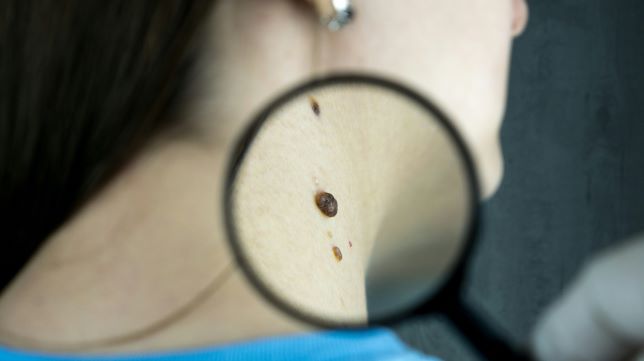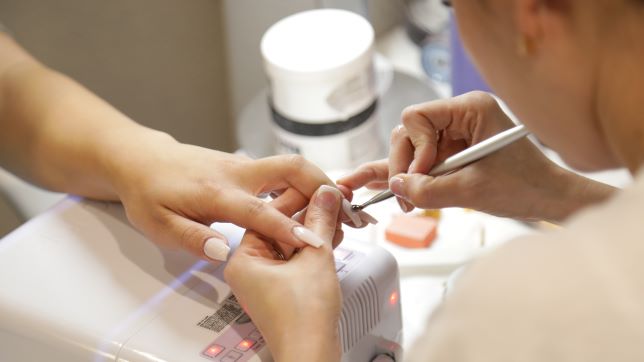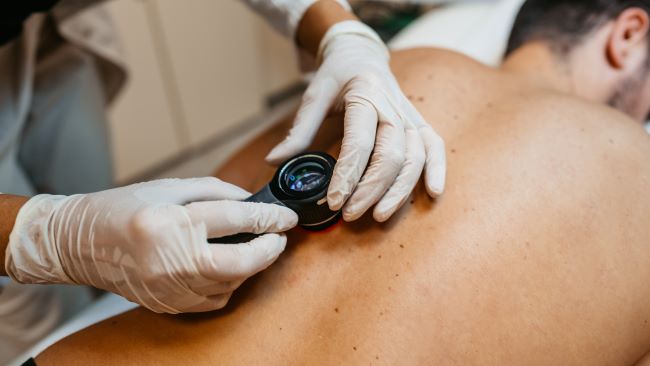Private Dermatologist
Skin is one of the first things you notice when meeting someone, shaking their hand or even greeting them with a kiss. When your skin glows with health it's easy to take it for granted, but if you have a visible skin problem you can quickly lose confidence. Skin problems should always be taken seriously with a visit to a doctor or dermatology clinic to help reduce the distress that persistent symptoms can cause.
The team of private dermatologists at The Medical Chambers Kensington has advanced training in analysing skin, hair and nail changes to identify potential problems and diagnose conditions that range from minor to life threatening. Whether you are experiencing excessive sweating, rashes, an inflammatory skin condition, a changing mole, or are seeking advice about a birthmark, they can help you choose the right approach and treatment
Common dermatological conditions include:
Acne Everyone gets the occasional spot, but acne causes persistent pimples and blackheads when blocked oil glands in the skin become inflamed. While it is often viewed as a teenage problem, a significant number of adults experience acne too. Acne should always be treated expertly to limit the duration and severity of symptoms and to prevent scarring.
Our private dermatologists have an arsenal of acne treatments at their disposal, from topical products you apply directly to affected areas through to oral antibiotics. They may suggest a cream or lotion if you have dry or sensitive skin, or a gel if your skin is prone to oiliness. They can also prescribe specialist treatments. Acne treatments can take a few weeks to have full effect and we are with you every step of the way to help you achieve the best possible results – whatever your age.
Eczema Atopic or allergic eczema causes dry, scaly or thickened skin with redness and itching, most commonly on the hands, inside the elbows or behind the knees, although it can appear anywhere on the body. Worsening symptoms, with weeping sores that crust, are usually due to colonisation by skin bacteria and is an indication that you should see a dermatologist.
Psoriasis Psoriasis is an inflammatory disease in which new skin cells are produced faster than normal, forming raised, red patches covered with fine silvery scales. Psoriasis can affect any part of the body, including the scalp and nails. If your psoriasis is not as well controlled as you would like, visit with one of our private dermatologists who can explain the different treatment options available.
One in five people with psoriasis also develop inflamed joints. This needs early treatment to protect them from permanent damage. If you have psoriasis and are experiencing joint pain or swelling, it’s important to seek urgent medical advice in case you need referral to a rheumatologist.
Rosacea Rosacea causes facial redness, flushing and puffiness with dilated capillaries. If not treated, it can progress to form acne-like pustules and, in some cases, the eyelids may become inflamed and skin on the face and nose can thicken. Early diagnosis and treatment is vital to prevent this progression. A private dermatologist can assess your skin and advise whether you will benefit from topical antibiotics, a specialist acne treatment or oral antibiotics for more severe symptoms.
Skin infections Our team of dermatologists are experienced in treating all forms of fungal, viral and bacterial skin infections, from impetigo, ringworm and shingles through to infestations such as scabies. If you think you could have a skin infection it is important to have it assessed before the condition spreads or passes on to someone else.
Skin cancer Most skin cancers do not cause symptoms initially, so it’s a good idea to check your skin regularly for any blemish that seems to be changing. Always seek medical advice if a mole or other skin lesion starts to:
If diagnosed early, the majority of skin cancers can be treated successfully so don’t put off seeking advice.
The team of private dermatologists at our clinic in London
If you're worried about a lump or bump, a mole or a rash don't ignore it. Many skin conditions are harmless and cause no long-term ill effects, but some can be more serious so it's important to get advice as soon as you can. The team at our dermatology clinic provides specialist care. Our GPs are also available to assess any skin problem and can refer you to one of our private dermatologists if necessary. To learn more, please telephone 020 7244 4200 and we will be happy to answer your questions.


















